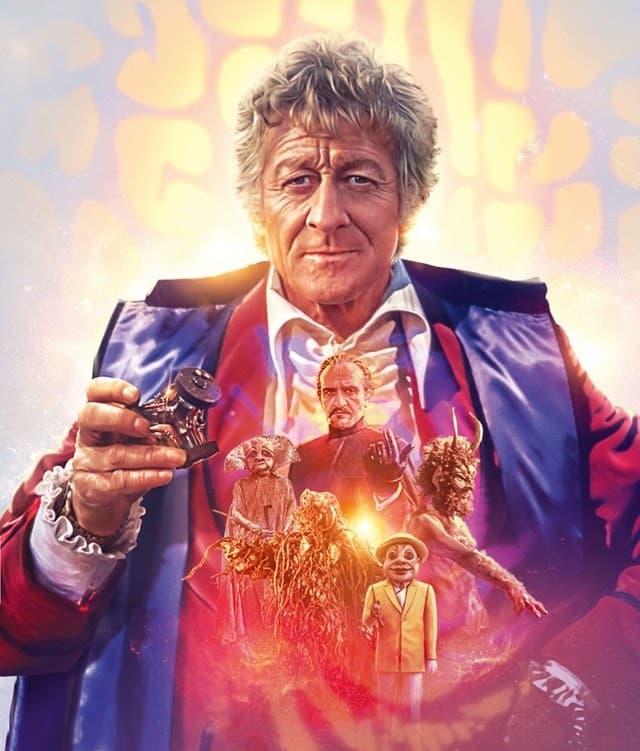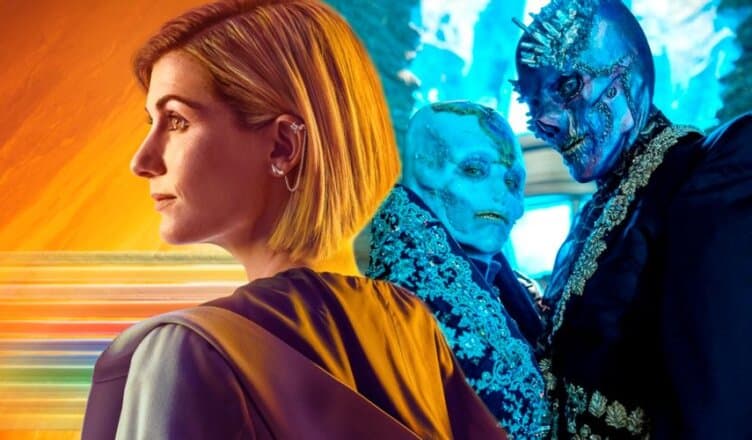I didn’t know that much about utilitarianism before you started discussing it now, and I’ve done a little bit of reading on it, and I think I agree.
One thing I read was that ‘Utilitarianism is Relativistic rather than Absolutist. Absolutist moral views hold that certain actions will always be morally wrong irrespective of context or consequences.’ This was interesting to me because at first I thought to myself, no, Leela has a very strong moral compass, she wants to do what’s right for everyone. However, looking at how Utilitarianism is broken down, Leela’s morality is fixed and unshaking, which does not align well with Leela’s outlook at all.
There seem to be, from my reading (which I admit is very surface level) two major types of Utilitarianism, as it were: Rule and Act. Romana, and indeed, the Time Lords as a general whole seem to fall solidly under Act Utilitarianism. “An act utilitarian, such as Bentham, focuses only on the consequences of individual actions when making moral judgments,” was something I read, and this very much strikes me as a Time Lord outlook. In Weapon of Choice, Romana has this conversation with Narvin and Leela:
LEELA: I could not return to the place I came from.
ROMANA: Well, yours is a special case.
NARVIN: How so, Madam President?
ROMANA: [Forcefully] Because I say it is.
This, I think, perfectly exemplifies Romana’s Utilitarianism; she is always willing to bend the rules and make exceptions to the written rule of morality if it suits the needs of the situation in order to give people what they need. Of course, in this case, it brings both her and Leela happiness that Leela isn’t turned away from Gallifrey - though conversely, she also uses and manipulates Leela into staying on Gallifrey when she doesn’t necessarily want to so that Romana can make use of her skills, therefore serving most people.
Weapon of Choice also has another ethical dilemma surrounding the planet Gryben, and the impending threat of its doom. The issue is that a catastrophic bomb is about to destroy the whole planet, and the Time Lords discuss this thus:
ROMANA: Braxiatel. Can you organise an evacuation of Gryben?
[…]
NARVIN: Evacuation is impossible. Where would we evacuate the inhabitants to? Madam, the blast wave might reach even Gallifrey. These asylum-seekers are not our priority. The protocol is clear! This is Coordinator Narvin to Time Control. Ready Battle TARDISes in assault formation around planet […] Gryben.
[…]
ROMANA: I will not sanction this!
NARVIN: You have no choice, Madam President! I need not remind you that your affection for these… refugees must not be allowed to cloud our judgement, or override our greater responsibilities!
ROMANA: And I need not remind you, that you are not the boss! This is President Romana to Time Control. Lift transduction barriers […] Yes, you did hear me right! Now do it, unless you’d prefer a permanent posting to the Putrid Wastes.
NARVIN: You cannot set these flotsam people free!
ROMANA: No, I can’t! But I can, at least, give those with working timeships a chance.
BRAXIATEL: No, Madam President, this is not the way. This is Cardinal Braxiatel. Please, disregard the President’s order.
[…]
BRAXIATEL: Lifting the barriers will create a stampede, they will fight like dogs to reach their lifeboats. Thousands will be killed and maimed […] If the people must die, let it be cleanly. There is still time to resolve this situation, Romana.
Here, Narvin is the voice of the unbending Rule Utilitarian, deciding that it is best to follow procedure as the threat of the bomb is, to him, greater to the universe than the planet, so destroying the planet is to destroy the device, ergo causing most people happiness by having them not killed by this device.
Braxiatel appears to agree with Narvin, but his approach is different. He uses the Calculus in order to come to the conclusion that destroying Gryben by the Time Lords’ hand is better because it will reduce the overall suffering of the people there as well as serve the greater good. He is not arguing, like Narvin, that this solution is the only sensible one, but that it is most ethically sound as it will cause most happiness overall.
Meanwhile, Romana wants to flagrantly disregard the rules and evacuate the planet as she sees the deaths of all the citizens of Gryben as something that would not increase happiness. To her, the most happiness that could come from this situation would be for everyone to live, and that therefore leads her to the conclusion that sacrificing herself in order to save everyone is the best solution. Unfortuantely, this is not the last this line of Utilitarian thinking leads her to the self-sacrifice conclusion in order to save the many. (![]() )
)
I realise I have not in fact answered your question about Leela, who I agree, does not fit well into the Utilitarian framework. I think she aligns more closely, interestingly, with Narvin in that she has a fixed set of rules which helps her decide the moral thing to do, but unlike him, her morals come from her internal heart rather than an external system. I do not know too much about the other frameworks you mentioned, so I would have to go away and do some more reading, but I hope this has given you something to think about ![]()

